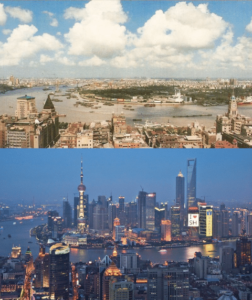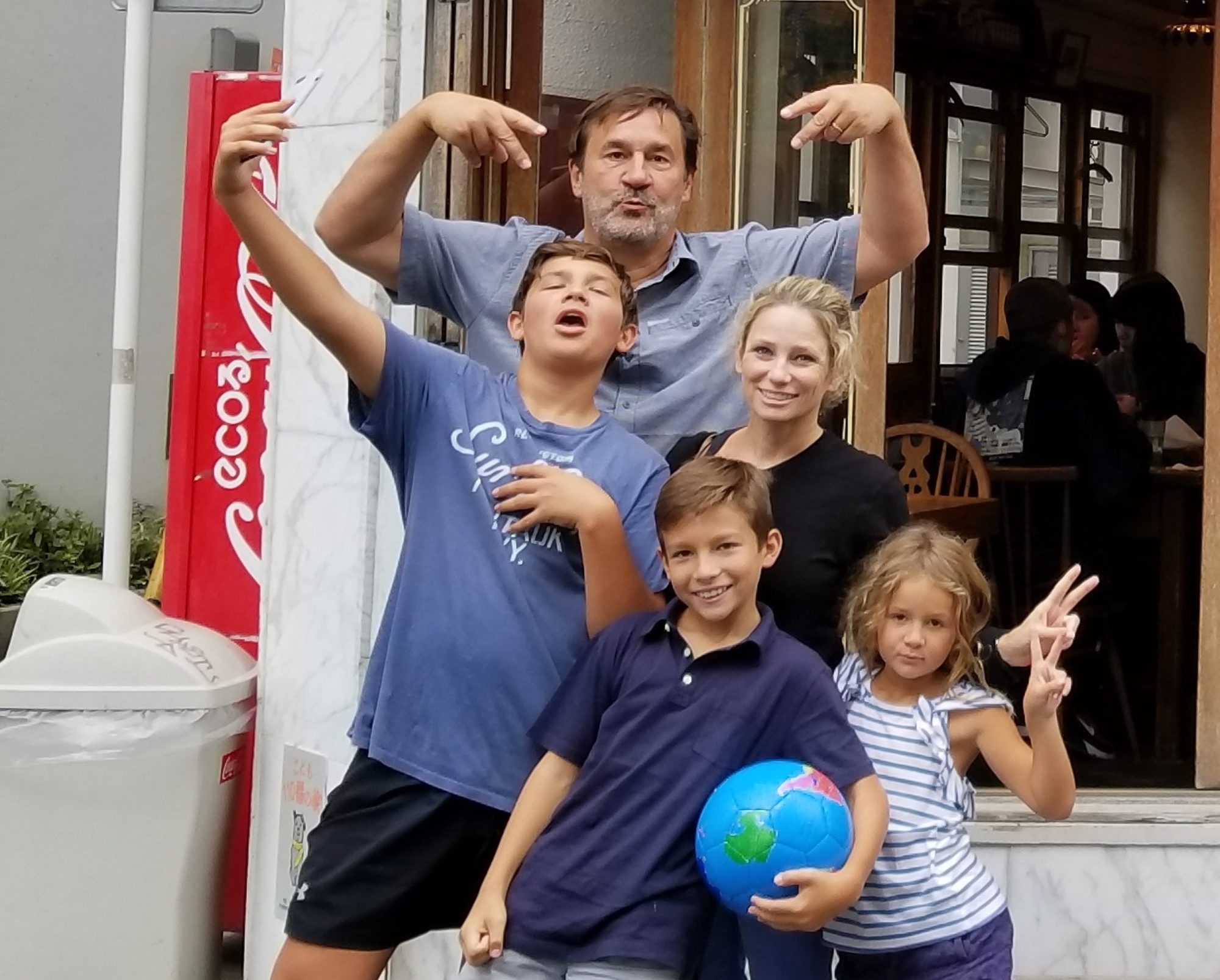China is time. When you see buildings and visit places measured in many centuries, while trying to grasp the breadth of development over thousands of years, merely keeping track of dynasties on the timeline alone is a daunting task.
Years ago I was extraordinarily fortunate to have visited China on a trip with my father and mother were invited along with many other Wall Street luminaries to speak to and teach the then Chinese leaders about investment banking, bonds, securities, capital formation, and the rest of seeming alien capitalist methods. Part of that excursion included an audience with Deng Xiaoping and a dinner in the Great Hall of the People just off of Tiananmen Square. The year was 1986. Telling someone that you met Deng in 1986 is like someone telling an American saying they met Abraham Lincoln. Today the statement is met with incredulity until I bring out my pictures. A gasp and “your father must be very important man” is the common reply, squelching the skepticism.

From that trip, my most powerful recollection of Deng’s talk was the statement, ” 30 years from now China will take it’s proper place in the world economically and socially.”
Right on schedule.
Most of the people we come across today in China were not yet born or were quite young during my first visit. This is because Chinese elders do not speak any English. Only the young and usually the fortunate Chinese youth of the Communist Party members have both the language chops and the outward facing jobs. And the trust of the Party to speak the vision and “truth.”
People often ask what it was like then. To try and describe the extraordinary change that has taken place in Beijing specifically, and China generally over the past 30 years is like trying to describe the sensation of diving into the water to someone that has never been swimming. Then, nearly everyone rode on bicycles, and mobs pressed against the gates of the few hotels that existed. Pollution was so thick I recall climbing about 3 to 5 stories and coughing up blackness from the low-grade coal burned from smokestacks of coal-burning factories, and from trains that chugged like those in TV Westerns when I was a kid. And we were always watched and listened to. It was like something from a spy movie. We were photographed, stared at, and studied like curious animals in a cage. All the while we were driven around in old Mercedes with country flags over both headlights.
Shanghai was even more stunning. While today it is home to over 20 million people, at the time it was barely open fields on one side of the Yangtze river that runs through Shanghai’s center. As recently as 1999, an entire half of the city on one side of that river Did.Not.Exist. Imagine drawing a line through New York City or Los Angeles in the year 2000. In your mind now, place an open field of grass and tumbleweeds on one side, and over the next 15 years build the equivalent of one more New York City or Los Angles on that barren patch. Mere words cannot describe the scale of the transformation.
I have since returned to China in 2008 and 2009 at the bottom of the global financial crisis, and here again in 2017 with my family. China is perhaps my strongest recommendation for any trip idea. China today will inform the future, and what she is today will not be what she becomes. Go and understand today, for it will divine tomorrow.
Approaching 2008 I felt that the 2008 Olympics would mark the debutante ball for the nation of China. Anyone that watched the drum performance in the opening ceremonies that night will never forget the powerful statement made that evening. In just 50 or 60 years the Chinese have turned a country in crisis into opportunity would be an understatement. [Due to a misuse by JFK in 1958, It is often misquoted it is often misquoted that the Chinese character for crisis and opportunity are the same. This is not true.]
Pay attention to the statements made by President Xie. Pay attention to their 5-year plans and objectives. Make note of the longevity inherent in their planning and subtle nuance of their statements. President Xie speaks of one of his major objectives being the “One Belt, One Road” initiative, the revitalization of the Silk Road that runs from Central China through the “Stans” like Afghanistan and Pakistan, Bangladesh and India. All the way to the Middle East, Africa, Russia, Europe, and the UK. An overland trade route that bypasses the traditional shipping lanes and seeks to uplift many countries with which the US is not always friendly.
“Faites attention”, as the French say, pay attention. The world is dramatically shifting right under our feet and has been for the better part of the past 30 years. The Dragon has awakened. In China the people say, “Mr. Deng was a great man.” And apparently a visionary.
I fear that the short-sighted U.S. worldview colored by our quite limited history, our embedded complacency, our lack of patience, and the anything-goes social structure might prove dangerous to our very survival.
In China, the slow sands of time can shift dramatically… in a New York Minute.

Top view circa 1990. Bottom view 2010.
